Learning to Find My Own Path, Like My Great-Grandfather and Avraham Before Me
The year was 1874. A fourteen-year-old boy somehow slipped unnoticed onto a passenger freighter at the dock in Shanghai. The ship was one of those newer ones, powered by a steam engine, but with a set of backup sails just in case the engine failed. Steam puffing from the chimneys, anchor hoisted, the ship was ready to leave the port.
This is how I imagine the start of my great-grandfather's trip from China to the United States, a journey that later became the inspiration for and guide to my own.
Every time I read in the Torah about God telling Avram, "Lekh l'kha"—a phrase that can be translated as "Go for yourself," "Go by yourself," or "Go to yourself”—this image of my great-grandfather on his journey comes to mind. "Lekh l'kha, go from your land, from your birthplace, from your father's house, to the land that I will let you see." And God continued, "I will make a great nation of you and will give you blessing and will make your name great. And you shall be a blessing." (Genesis 12:1-2).
Avram, later renamed Avraham, is known in the Torah as "ha-ivree" ("The Hebrew"), from the root meaning "one who is on the other side" or "one who crossed over" (Genesis 14:13). Like Avraham, when my great-grandfather embarked on his journey, he did not know exactly where he was going. He left behind his father’s house, his birthplace, his land, and his name changed. He was willing to "cross over boundaries" or "go over to the other side.” I suppose you could also call him “ha-ivree.”
No one knows exactly why my great-grandfather made this journey. According to family lore and documents found later, he went to California by himself from China, maybe for the gold rush or to work as a laborer on the railroad.
My great-grandfather was 5 feet 3 inches tall and slight in build. His skin was golden brown from the sun, and as part of the Han persecuted minority in China, he wore his straight black hair in a long braid at the back of his head, often wrapping it several times around the top of his head to keep it out of his way. Back in the 1800s, to travel across the Pacific Ocean on a steamship meant at least three or four months of not-so-comfortable conditions. On top of that, he was going to a place with different cultures, food, and language.
He lived through the Chinese Exclusion Act of 1882, which banned Chinese immigration for ten years and prohibited Chinese immigrants from becoming citizens. This act was enacted and extended by Congress due to growing anti-Chinese sentiment and violence and was not lifted until the passage of the Immigration and Nationality Act of 1965. In order to stay in America, my great-grandfather assumed the name Charlie Wan in 1894 and became a Paper-Son, someone who used falsified legal documents, pretending to be the son of Chinese Americans who were US citizens. He was enrolled into a church mission for Chinese immigrants, learned English, and became a devout Christian.
In 1902, at age 42, my great-grandfather returned to China to take care of his aging parents. He changed his name back to his birth name, Cheng Con Sheng, and founded a hospital, a couple of churches, and department stores. He became a very successful businessman with a large family.
As I was growing up, I heard many family stories about how generous my great-grandfather was to the needy, how he provided shelter to refugees during the World Wars at the house he built himself, the house where I grew up in Hong Kong.
One story that stood out for me was how my great-grandfather, upon returning from the United States to China, destroyed all the carved Buddhist statues in his home and encouraged family members to stop worshiping idols. It reminded me of the ancient biblical commentary that tells of Avraham and his father, Terah, an idol-maker. One day, Terah left Avraham alone to watch his shop. While he was gone, Avraham broke all the idols except one. When his father returned, he asked Avraham who had done this. Avraham replied, "One of the idols smashed the others." Terah replied, "Don't be silly. They're just stone—they can't do anything." Avraham then retorted, "So why do people worship them?"
Like my great-grandfather, I was fourteen when I came to California with my family on a ship in the early 1970s. There were differences, of course: the ship was much larger and more comfortable and the trip only took nineteen days. Also, my family and I had already obtained our greencards as permanent residents.
But there were similarities in our journeys, too. Like my great-grandfather, I had to navigate unfamiliar food, language, and culture upon arrival. One of the biggest obstacles I faced was my identity. I was coming out as a lesbian and exploring Judaism, but I didn’t know how to be gay, Chinese, and Jewish at the same time. I had not met any other Asian Jews, and I worried about breaking my family’s traditions and expectations. I didn't know how to step away from the generations of Christian faith my great-grandfather had created. I didn't know how to "go to the other side." I became withdrawn and painfully shy.
Then, while in college at Berkeley, I met my sweetheart, Bracha. A Jew-by-choice herself, she opened my eyes to Judaism. Shortly after graduating from college in the 1980s, we moved in together. This was a time when tensions ran high between the Japanese and American auto industries. That and the recession led to the racially-motivated killing of Vincent Chin, who was at a bar with friends celebrating his bachelor party when two white laid-off auto workers attacked and beat him to death. I remembered feeling scared because of the hostility toward Asians. At the same time, the HIV/AIDS epidemic ignited gay-bashings, homophobia, and discrimination. Bracha and I hid our relationship from family, friends, and co-workers.
In 1996, Bracha and I relocated to Southern California. Looking for community in Los Angeles, we decided to join Congregation Beth Chayim Chadasim, the world’s first LGBTQ synagogue, established in 1972. It was there that we felt welcomed, safe, and affirmed as a couple. I started taking introduction to Judaism classes and began my journey to embrace the covenant. I felt right at home.
One day during Torah class, while we were reading about Avraham, I realized that my great-grandfather himself had "crossed over," both physically and spiritually; he had to break his family tradition in order to start a new way of life, a way true to himself. Suddenly I realized God wasn’t telling us to leave everything behind to start anew: not Avraham, not my great-grandfather, not me. Instead, God is telling us to look into our past so that we can find our own way.
I have tried to enact this advice in my own life, by learning about my great-grandfather's history. Doing so has propelled me forward in my journey. I realized that if he could forge a new path for himself, so could I.
When my great-grandfather embarked on his journey 135 years ago, he couldn’t have known that his actions would inspire his great-granddaughter to become a Jew one day and to fully embrace who she is. On the other hand, I would not have dug out this history of him if I hadn’t started on my own journey and read about Avraham.
Each day we begin a new journey. If we are willing to cross boundaries and step out of our comfort zone, not only will we be able to make a positive difference in our lives, but our stories may also one day inspire someone generations down the road to change theirs for the better.
God told Avraham, “You shall be a blessing.” (Genesis 12:2). My great-grandfather’s memory is a blessing to me, and as I journey on my own path, I too strive to be a blessing to the families who gave me life and the families I have chosen.
The month of May is both Jewish American Heritage Month and Asian American and Pacific Islander Heritage Month, and June is Pride Month for the LGBTQ+ community. I feel blessed that I get to celebrate all of them.

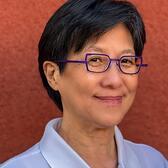
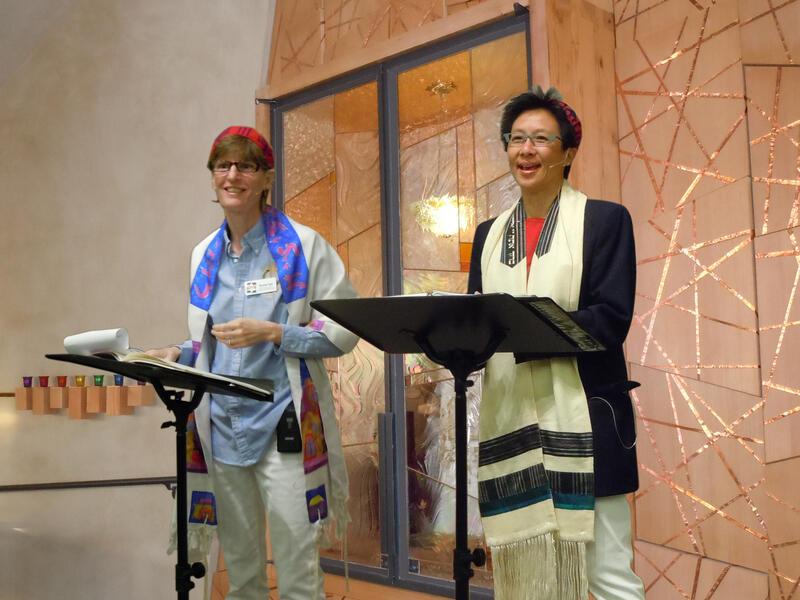
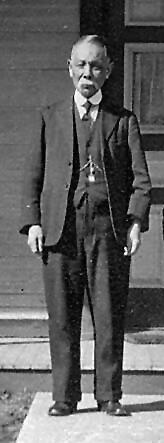
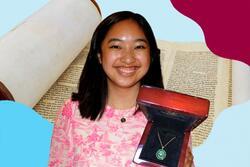
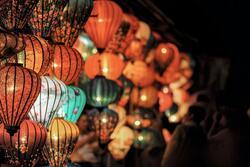



" Also, my family and I had already obtained our greencards as permanent residents." Davi, our greencards were issued to us at the dock by the U.S. Immigration Officers once the passport with immigration visa stamped in it was revealed to the two U.S. Immigration Officers who sat at the desk near the stairsway where we disembark from the S.S. President Wilson. I held on to the four greencards for us 4 kids until Dad and Mom asked me to hand them over to them except mine. Need to carry it at all time, to reveal to the officials when asked, in order to prove that one has the legal rights to live and work in the U.S.A. permanently. Did you surrender your greencard to the U.S. immigration official when you sworn in to become a Naturalized American Citizen after you passed the written and oral exams ?
Where are the two to previous comments that I made? What happened to them?
Once again. Chas Jan Wan is the official name on his 1894 authentic U.S. Certificate of Residence, as a result of the 1892 Gary's Act, we ended up with an authentic photo image of our great grandfather whose given name was Jan Wan, the phonetic pronounciation of "Cheng" and "Wan" means "Playful", according to late greataunt Mrs Dorah Choy. A 1930s HongKong University graduate and a dedicated "Christian/Protestant" who went to a Bethel if not a Pentacostal Church in B.C.C. HongKong, not the Hop Yat Church in Kowloon where you and I were "sprinkled" on in 195(8) when you were still in the arms of mother.
Our great grandfather was sent onboard a Chinese vessel called a "Junk" by his parents to come to "America" when he was 14 years old and that was around the year of 1874 that greatgrandfather came to America. I have not done any research to find out if there were any trans-Pacific steamships back in the 1870s but from words of our great aunt-Dr. Tso, a PUMC graduate in gynecology, greatgrandfather Jan Wan, last name Jan, the phonetic pronounciation of the Chinese character equivalent to Cheng, he was NOT a stow away but was sent onboard a Chinese junk bounded for America by his parents, our great-greatgrandparents when he was 14 years old, and I traced it back to the year of 1860 that great grandfather was born in "Chung Shan" in the Ching dynasty era of China and already British Crowned Colony of Hong Kong before the "fragrance city"-fishing village was "westernized".
Davi, you ARE an inspiration to all of us at BCC, and to the world via your art. Thank you for this story about your great grandfather!
I was inspired to read your story. Thank you for sharing. I was able to relate and find some healing as I read about your history, your choices, and your journey. Thank you for sharing.
What an inspirational post! I have known, and studied with, you and Bracha for over 20 years, yet I never heard this story. Thanks for sharing it with us.
Beautiful Torah